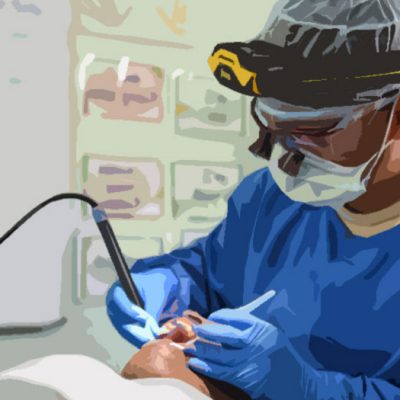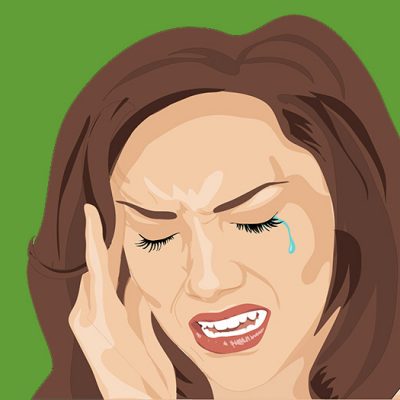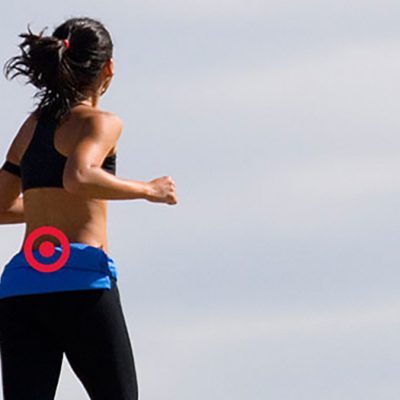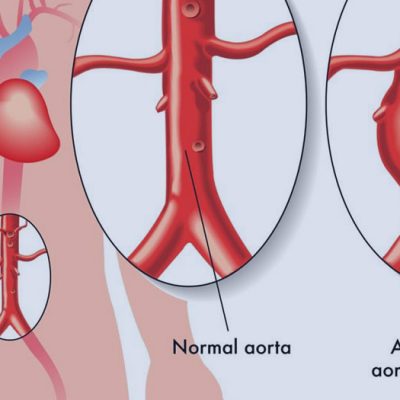Question: I’ve had cold sores for as long as I can remember. They not only hurt, but always seem to strike at the worst times — like before a presentation or major social event. I’ve tried some over-the-counter remedies to prevent them without much success. Can you help?
Answer: I can sympathize with you. I’m a trombone player and used to be plagued by fever blisters right before a big performance. You see, anything from emotional stress to physical illness can trigger an outbreak. But I’ve found some help and so can you.
About the Cold Sore Virus
Herpes virus Type 1 (HSV-1), which infects 90% of Australians, causes cold sores. We usually get infected in childhood by kissing Aunt Melba at the family reunion, or similar direct contact with an infected person. After infection, the virus particles travel through the nerves and set up residence in bundles of nerve roots called ganglia near the spinal cord.
Whenever our immune system is challenged, we have some other infection or the skin connected to the infected nerves is traumatized, the virus can be activated. The result is the painful, red and eventually ulcerated spot we call a fever blister or cold sore.
Though commonly occurring on the lips, it is possible for the infection to spread elsewhere. If you touch a sore and then scratch your nose, for example, you could get a sore on your nostril.
While cold sores are mostly a painful, cosmetic nuisance, the virus often causes severe and life-threatening infections of the eyes or brain of individuals with compromised immunity, like those with AIDS or who are taking medicines to avoid transplant rejections. An HSV-1 infection can be fatal to a newborn.
Keeping the Virus Dormant
Since avoiding exposure to HSV-1 is nigh impossible (given that almost everyone harbours the virus), a key strategy is to nurture your immune defenses and keep the virus dormant in the nerve roots. A healthy lifestyle and a few supplements are your best shots at preventing or blunting attacks. More on that below.
As nearly everyone knows, cold sores have a way of showing up during periods of extreme stress. This is no happenstance. Hormones triggering HSV-1 are released into the blood and nervous systems during periods of high stress. That’s why certain stressors — and your responses to them — could make you susceptible to an outbreak.
Stop Cold Sores Mentally
To prevent cold sores, start with good mental hygiene. Get rest, develop effective mechanisms for coping with stress, and reinforce good work habits, like avoiding procrastination that can turn up the heat before your presentation.
If you can’t sleep well, address it; if you have signs of depression, address them.
Immunity Boosting Diet
Your immune system is affected not only by how you feel but what you eat. Diets high in simple sugars, processed foods, alcohol and saturated fats aren’t healthy from many perspectives.
Rather, choose mostly vegetables and fruits, complex carbohydrates, fish and lean meats. Think Mediterranean or Asian, whichever suits your fancy. If possible, go organic and drink spring or carbon-filtered water.
Maintain Fitness
Exercise can prop up a flagging immune system and improve your sleep and emotional state of mind. So, get regular mixed fitness (aerobics and strength training). Some mindful methods like Tai Chi or yoga add variety and help with stress management, too.
Avoid Sun Exposure

Exposure to strong sunlight is a common trigger of cold sore outbreaks. It is possible that this happens because UV radiation weakens your immune system.
UVA rays penetrate deep into the skin, causing damage in the subcutaneous tissue. They contribute to premature aging and wrinkles because of this damage.
Dr Jaime Friedman
Definitely avoid excessive sun exposure, even if you are keep on getting a tan before a big event. Do the obvious things such as wear long sleeves and put on a hat, sunscreen and lip balm.
Supplements
A few supplements could help round out your prevention program.
Part of my daily supplement regimen is a broad-spectrum antioxidant. Most also provide immune enhancement. I don’t mean your mother’s “A-C-E” vitamin. Look for whole food derivatives of broccoli and other vegetables and fruits, along with bioflavonoids like quercetin and hesperidin. Since starting a “fruit-and-veggie-in-a-capsule” supplement half a decade ago, I only get cold sores when I leave my supplements at home on a holiday! Anecdote maybe, but research supports boosted immunity with some of these products.
Long touted as the Herpes panacea, the amino acid Lysine has more anecdotal than solid research support. Theoretically it blocks the action of arginine, another amino acid necessary for reproduction of the virus. Currently, I recommend it only for prevention, not treatment. Try 500 mg two or three times daily, assuming you’re not pregnant or nursing. Much more for long periods can cause liver and kidney problems. By the way, the “natural aphrodisiacs” often contain high levels of arginine, which can trigger genital and oral herpes outbreaks.
Probiotics
Since intestinal disturbances trigger HSV-1 outbreaks in many people, and since the intestinal tract harbors the greatest bulk of your immune system, it’s not a bad idea to nurture and replenish the “good” bacteria that live in your colon. Called probiotics, these friendly micro-bugs actually interact with and stabilize the gut’s lining.
I agree with many nutritional healers who recommend a good product containing acidophilus and bifidobacteria two to three times a week. Bump the dose to one or two daily when you have diarrhea or other intestinal disturbance, and certainly when you take antibiotics. No, yoghurt doesn’t contain hardy-enough strains of acidophilus to survive the trip to your intestines.
Ointments and Oral Medicines
Pharmaceutically, there are several oral and topical medications that prevent viral replication. Taken or applied at the first tingle or skin blush and continued for several days, these will often soften the symptoms and hasten healing.
Once in a while, an evolving outbreak can be aborted, especially with ointment creams like Zovirax. Some choose to take them when feeling stressed to prevent recurrences. The results can be impressive. Many products can help with pain, burning and cracking, ranging from protectants and emollients to anesthetics, often in combination.
I hope you can keep your outbreaks to a minimum with these tips. Remember that making immune-friendly choices will have other positive and far-reaching effects on your overall health. Even if you get an occasional cold sore, the rest of your mind and body will thank you for the improvements you have made.









